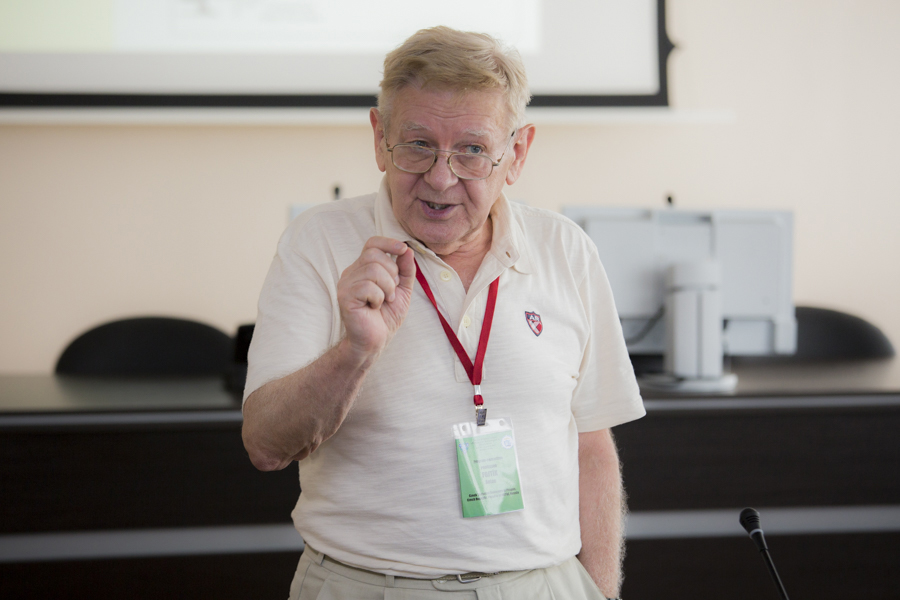Today scientists of global renown not only from Russia, but also France, Germany, USA, Italy and many other countries read lectures to students of MEPhI. One of them is Professor at the Technical University of Liberec, Czech Republic Anton Fojtik. The scientist was one of the first who started to study nanostructures experimentally. His publications on quantum semiconductor nanostructures are in the one hundred of the most-cited papers in the world.
Anton Fojtik graduated from the Faculty of technical and nuclear physics of the Czech Technical University in Prague. In 1982-1994 he was one of the leading figures in laying the foundations and further development of the quantum studies of nanostructures in the prestigious research institution – the Hahn-Meitner-Institut in Berlin. In 1994-1996, the scientist committed himself to study Si and GE quantum nanostructures, for example, the study of "luminous" silicon at the Institute of physics in Garching. Anton Fojtik received a large number of scientific and professional awards.
Now the famous physicist share accumulated invaluable experience with students of the Institute of Engineering Physics for Biomedicine at the National Research Nuclear University MEPhI. As he said, he wants the young people to continue working in this direction, search and find something of their own, make new discoveries.

– Anton, you are considered to be one of the first who began the experimental study of nanostructures. Please, tell us more about these studies.
– In the early 1980s, I participated in the project “Eureka” as a member of a scientific team led by Professor Henglein, Director of the Hahn Meitner Institute at the Technical University of West Berlin. The ambitious goal of this project was the desire to end the dominant position of the US and Japan in microchips technology. It was necessary to create appropriate facilities to obtain chips with a record for that time density of information (10MB/cm2). At that time, the Hahn Meitner Institute became a major center of research and production of materials for miniaturization of chip technology. My role was to produce and study a special colloidal materials. That was a time where the era of study of “super low-dimensional” particles has started, which now are called quantum nanostructures. Now there are only two out of that group – Professor in Germany and I. That’ why I have been called “the father of nanotechnology”.
– How do you assess the development of Russian science in the field of nanotechnology?
– Your country is just developing in this area. Russia is slightly behind, for example, America in the laboratory equipment, however the scientific level is immaculate.
– How do you see your work at the University, what new ideas do you plan to implement here?
– I brought here many years of my experience of work in universities and laboratories of Czechoslovakia, Germany, and United States for the joint work on advanced research projects in the field of nano-biotechnology in the Russian Federation. In the last century, I came to the USSR several times for the development of cooperation with some institutes and since then I have had the warmest impressions about Russia and many good friends.
I have a lot of ideas: for example development of artificial skin which has antiseptic, gas-transmitting and biodegradable properties. Nanoparticles in these tissues will perform the role of an antiseptic and kill bacteria. I also want to work on silicon nanoparticles with properties similar to the Bose-condensate (but which is not it). There are a lot more projects in my mind.
Recently the first Summer school "Physics and technology in the life Sciences" was held at MEPhI where Professor Fojtik read four lectures with original names: “Nano – today's most fascinating phenomenon” and "Clever nanoparticles and smart nanostructures”, which aroused great interest not only among students but also among professors and researchers of MEPhI and the Prokhorov General Physics Institute of the Russian Academy of Sciences, specially came to listen to the great scientist.





